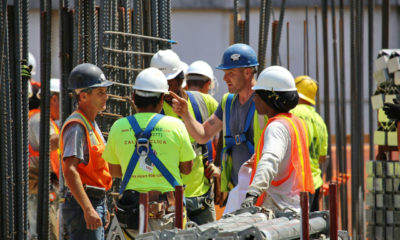Nigeria’s constant borrowings and debt servicing has been projected to be a huge threat to the nation’s economy, as the country spent $13.1billion in 11 years to settle her foreign debt obligations.
In an international payment data released by the Central Bank of Nigeria (CBN), the amount spent by Nigeria on debt servicing and payments to the World Bank, International Monetary Fund (IMF), Exim Bank of China, among others reached a $1.4 billion mark in 2018. According to the report, the CBN, in 2019, withdrew $1.34 billion for debt servicing and payment.
Investors King understands that in 2021, debt servicing and payments dropped by 63 per cent to $2.13 billion from $5.77 billion reported in 2020.
The data further revealed that in the first three months of 2021, $1.3 billion was spent to service debts. The amount dropped to $298.9 in the next three months ending June 2021. Also, between November and December of 2021, the CBN revealed that $148.57 and $69.83million were spent on debt service and payments, respectively.
This increasing debt servicing has become a source of worry to stakeholders and economists. Recently, the Monetary Policy Committee (MPC) members of the CBN expressed concerns over this development, as well as its vulnerability to the nation’s economic growth. The committee members, at their last meeting, had cautioned the Federal Government on the rising government debt profile and the concentration of the funding sources and its implications for fiscal sustainability and macroeconomic stability, including its impact on financial system performance and growth.
Also, the African Development Bank, AfDB, in its recent West Africa Economic Outlook, said the servicing of the country’s external debt gulped about 50 per cent of the country’s revenue.
The AfDB noted that even though Nigeria’s debt burden had increased by as much as 128 per cent in the last eight years, the country’s debt to Gross Domestic Product remained low.
“Nigeria is however not alone in the debt dilemma as the global debt levels soared above 400 percent of global GDP early in 2021, but later declined to about 350 percent of global GDP by the third quarter of 2021.
“The main challenge is the lack of debt wisdom in Nigeria and with the debt service expenditure estimated at about 35.6 percent of the projected revenue in 2022, the road to long term recovery now seems more uncertain than previously anticipated”, Robert Asogwa, a member of AfDB said in his personal statement.
Another member of the MPC, Mike I. Obadan said: “Fiscal performance is worrisome in the area of revenue generation and the attendant narrow fiscal space and public debt accumulation. Besides these are other issues which shape the direction of monetary policy.”

 Forex3 weeks ago
Forex3 weeks ago


 Naira2 weeks ago
Naira2 weeks ago
 Billionaire Watch2 weeks ago
Billionaire Watch2 weeks ago




 Naira2 weeks ago
Naira2 weeks ago




 Naira4 weeks ago
Naira4 weeks ago




 Naira2 weeks ago
Naira2 weeks ago


 Naira1 week ago
Naira1 week ago
 Banking Sector4 weeks ago
Banking Sector4 weeks ago






















